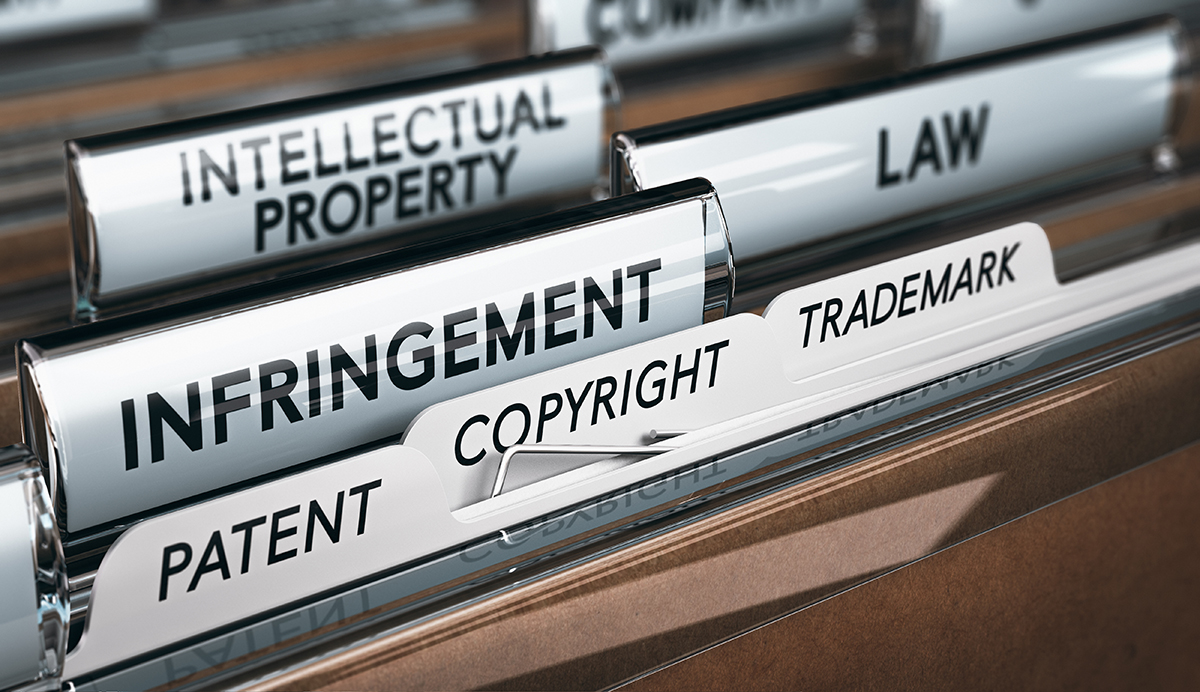What is the Difference Between a Trademark, a Patent, and a Copyright?

When you or a group of collaborators come up with a work, invention, or idea through your own creativity and original thought process, you’ve created intellectual property. Unfortunately, unlike most physical property, intellectual property is easily stolen or misattributed, which can result in its rightful owners being denied credit and compensation for their work.
People who create intellectual property should do everything in their power to protect it. That’s where intellectual property law and intellectual property lawyers like us come in. We help the people who brainstorm new ideas protect them from theft, fraud, and infringement through trademarks, patents, and copyrights.
Those three forms of protection are familiar to just about everyone, but not everyone knows the differences between them or which one they need for their idea. If you’re unsure about these three common terms, keep reading to learn more.
Trademarks
Trademarks protect words, phrases, designs, or combinations of all three that identify specific goods, products, or services. These unique identifiers also help distinguish those intellectual properties from similar products and services.
Common examples of trademarks are popular brand names that are strongly associated with the products in question. Without being officially registered as trademarks, those brand names could be used by other companies or parties to benefit from brand recognition or quality established by the original product or owner.
Patents
Patents protect technical inventions, which can range from machinery and physical products to industrial applications to chemical compositions. These inventions typically must be usable and applicable to a certain industry.
Common examples of products protected by patents include video game consoles, prescription medications, batteries, and even social media platforms. When a product is patented, it can’t be copied, sold, or directly imitated without the owner’s consent.
Copyrights
Copyrights protect creative works including books, songs, television shows, films, artwork, pictures, and more. Copyrights are important in creative industries, as they prevent others from emulating existing work too closely and allow creators access to profits and royalties.
Common examples of work that’s protected by copyright include song lyrics, musical arrangements, and famous artwork hanging in museums. When a creative work is copyrighted, only the owner has the ability and permission to reproduce, distribute, or display it.
Some Works Require More Than One of These Protections
Depending on the type of intellectual property you’ve created, there’s a chance you may need to apply for a patent and a trademark. This is common in situations where someone invents a new product and also needs to market it under a brand name. Creative endeavors may also involve both a trademark and a copyright—for example, a new movie studio releasing its first film may need to trademark its name and copyright the film.
It’s not always easy to determine whether you need a trademark, a patent, or a copyright, or some combination of the three. That’s why speaking to an experienced Orange County intellectual property lawyer can help you make the right decisions, as you’ll know exactly what needs protecting and how to go about it.
All 3 Can Involve Complex Legal Proceedings, and We Can Help
Whether you’re applying for a patent, trademark, or copyright, or you need help after someone has infringed on your intellectual property, it’s vital that you have an experienced law firm on your side. Our patent and trademark attorneys will work hard to ensure that your idea is submitted properly to be approved, or that your rightful ownership is proven and upheld in the even that someone else tries to profit from your work.
Never take protecting your intellectual property lightly. Valuable and profitable ideas are stolen or infringed upon every day, resulting in massive losses for their rightful owners. Don’t let it happen to you! Contact us today for a free consultation and to let our legal team begin protecting your hard work.

